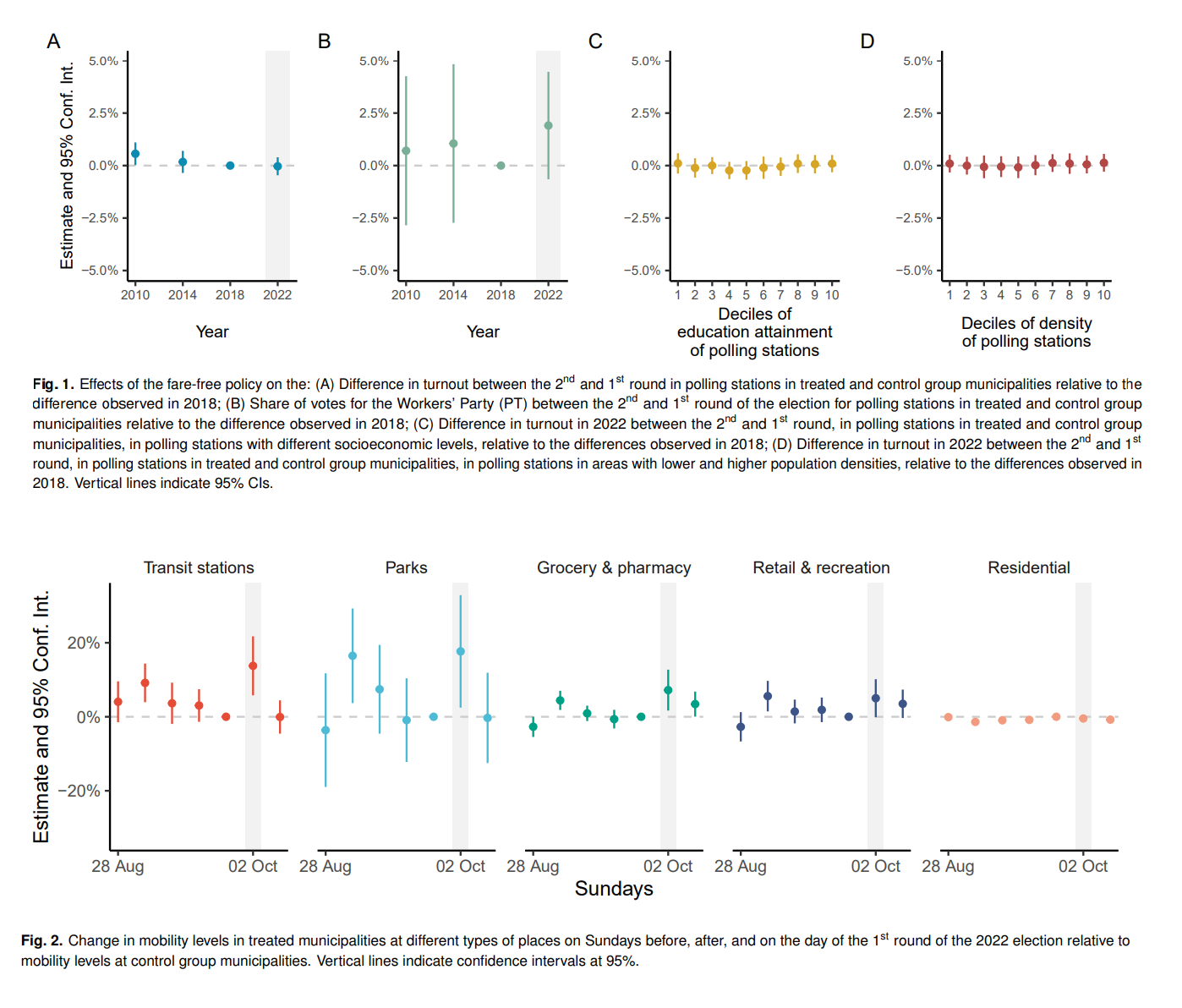Free public transit and voter turnout
Super glad to share the preprint of our new study. Approx. 50% of the Brazilian electorate live in cities that provided fare-free public transit on the 2022 national election days. We examine the impacts of this large-scale fare-free policy on voter turnout rates, election outcomes, and human mobility levels.
- Pereira, R. H. M., Vieira, R. S., Bizzarro, F., Barbosa, R. J., Dahis, R., & Ferreira, D. T. (2022). Free public transit and voter turnout. OSF Preprint. DOI 10.31219/osf.io/fzwgq
Abstract:
Transportation costs are an under-appreciated barrier to political participation. Here we examine whether a large-scale intervention to lower these costs, the adoption of a fare-free transit policy on election day in Brazil, increases voter turnout. Taking into account the different timing of when municipalities adopted a fare-free transit policy between the first and second rounds of the country’s 2022 presidential election, we use different event study designs to examine the policy impact on voter turnout rates, election outcomes, and human mobility levels. We find no effect of the policy on turnout or election outcomes, but we find a positive effect, between 7.2% and 17.5% increase, on mobility levels on election day. While reducing transportation monetary costs may improve people’s access to polling places, our findings suggest it is not sufficient on its own to increase voter turnout.
